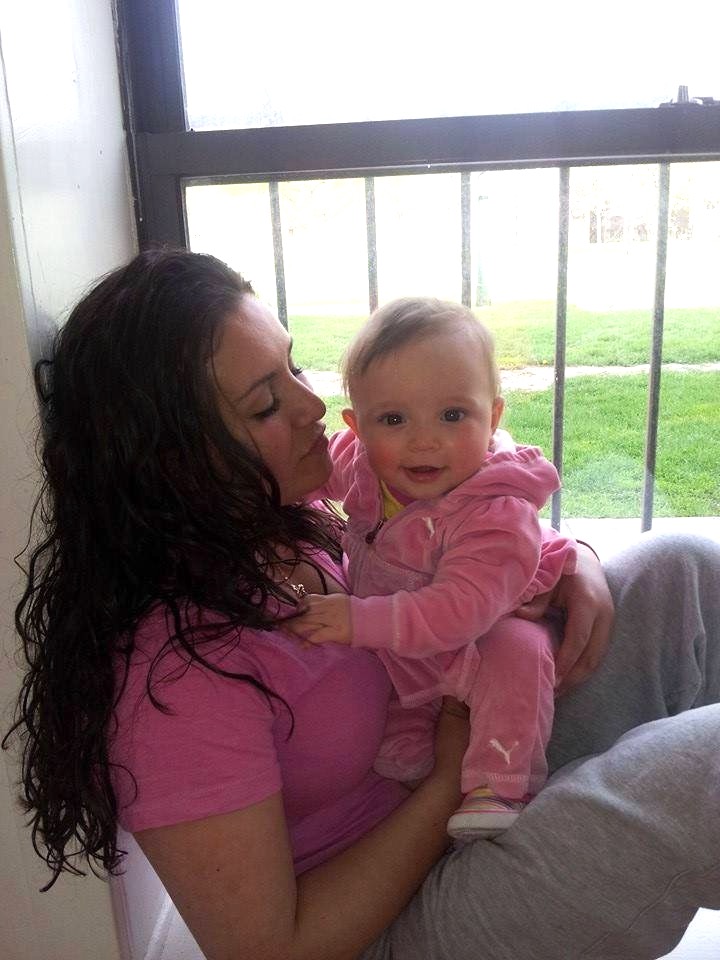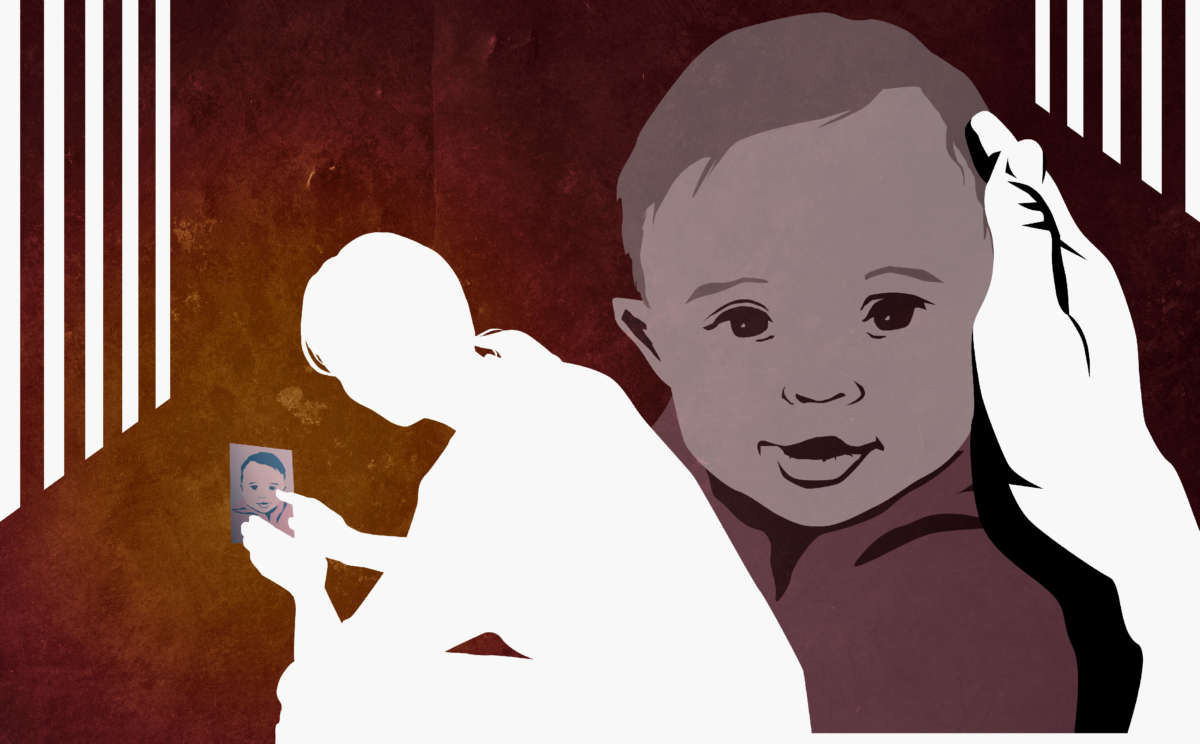I’m R87914. Even though I’m no longer in prison, that number, just like my social security number and name, will never change. I’m also a proud mom and a new one at that. There were no balloons or cards, no flowers or family allowed in the delivery room at the time of my daughter Aniela’s birth.
The prison where I was incarcerated wouldn’t allow mothers-to-be to go into labor naturally. Too inconvenient. Each birth was scheduled ahead of time. Mothers were not told until the morning of their scheduled labor day that they were being taken to the hospital and induced. Families of the women were not told until after the baby was born; a three-minute phone call was allowed after the birth, per discretion of the officer.
During my 36 hours of labor, an officer would sit on the couch, and watch me, and make occasional small talk and sometimes even pretend like they cared. Their shift, just like any other person’s, would end and eager to go home, they would leave, a new officer would walk in.
Pregnant women in Illinois and a few other states are not allowed to be shackled, only handcuffed. I can’t imagine having to waddle in shackles eight or nine months pregnant. But so many of the guards in Illinois complain about not being able to use the shackles during pregnancy.
After birth, women can be shackled — regardless of any pain from stitches one may have, or the women with C-sections. Once the baby is born, all restraints are once again an option, per discretion of the officer.
So, there I was. Still in tears, both from being happy and also in pain, with my firstborn in my arms, an officer still on the couch and my feet shackled to the hospital bed, all the time knowing that in less than 48 hours my daughter would be taken from my arms and I would be driven back to the prison, handcuffed and shackled the entire ride.
I cried the whole drive back to the prison after I was pulled away from my daughter. I closed my eyes and just tried to keep seeing her face.
Although I could not breastfeed my daughter, I was the first person in my prison to be able to pump milk while incarcerated. Before that, the Illinois Department of Corrections said that any kind of breastfeeding or pumping by inmates was out the question. They said a breast pump was a safety risk. But after a struggle, activists finally got the Department of Corrections to allow breast pumps in Logan Prison. Until I started last year, using a breast pump in an Illinois prison without the baby being at the facility had never been done.
Still there was no funding for a breast pump. Further efforts led to the donation of three breast pumps, along with the other supplies needed to save and freeze milk.
So, when I got back to prison, there were two of us women who had just given birth the day before. I chose to use a breast pump and send home milk. She decided against it when we found out that if we used the breast pump, we would be restricted to staying only in the health care unit of the prison until further notice. (In some ways, that was kind of living in a prison inside of a prison.)

For the next month and a half, I stayed in the health care unit and pumped every two to three hours — that is, of course, after we were done mixing up pieces to the different pumps and finally got one of them set up correctly. I had a picture of my daughter that had been taken at the hospital, and I looked at it while I pumped. I labeled bags of breast milk with the time and date, and every two weeks my family would have to drive four hours to the prison and pick them up, which ended up not really being possible. Milk would be wasted if it was brought out before visitors were allowed to leave. All visitors need to be escorted in and out of the prison at set times, and no coolers can be brought in to help preserve the milk, so some of the milk was spoiled. On top of this, for most women, it is not possible for their families to come and pick up breast milk.
I was taken out of the health care unit after a month and a half. The breast pump stayed in the health care unit. I was allowed to go there every three hours during the day, but I was not allowed to go at night. That meant I couldn’t pump at night. A month after that happened, I stopped being able to produce milk, not long before I went home to my baby. That felt like a lot of pumping for no reason. In the end, I was not able to breastfeed my daughter when I came home.
Here’s another thing that’s important to mention: After I was taken out of health care, one day they called me back in. Another woman was about to start using the breast pump. They called me in to find out how to put the second breast pump together. It wasn’t because I knew a lot about setting up a breast pump — it was because they knew so little. There was no one at the prison who could really support people in using the pump.
So, it’s a good thing that breast pumps are now allowed at the prison, but it’s not enough. If they even had one person in the prison who knew what they were doing, and knew what was going on, it would make a difference. It wouldn’t need to be someone’s full-time job. More people just need to know what’s going on. When I told the male guards, “I need to use the breast pump,” they laughed at me and had no idea what I was talking about. Also, prisons need reliable pumps that are not old, donated pumps with scattered pieces, and mothers need to have access to the pump at all times.
But also, when it comes down to it, my question is why we need to be thinking about breast pumps in prison in the first place. Why are all these moms sitting in prison when their babies are on the outside missing them?
If new mothers are incarcerated, they need to have access to breast pumps. But really, no breast pump can replace being with your baby. No one should ever have to be handcuffed, shackled and pulled away from their newborn child.
Note: This essay was written in 2014.
Truthout has launched the Keeley Schenwar Memorial Essay Prize, which will be awarded to a formerly incarcerated writer. Follow the link for more information.
Media that fights fascism
Truthout is funded almost entirely by readers — that’s why we can speak truth to power and cut against the mainstream narrative. But independent journalists at Truthout face mounting political repression under Trump.
We rely on your support to survive McCarthyist censorship. Please make a tax-deductible one-time or monthly donation.
